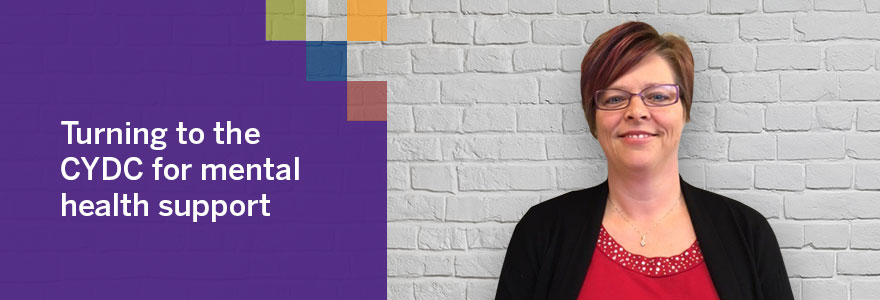
CYDC fills mental health services gap in London

In a moment, life can change.
For Sydney, life changed at 12 years of age. She suffered a hemorrhagic stroke.
It was this life changing moment that led Sydney to the Child and Youth Development Clinic.
The stroke left Sydney experiencing depression and General Anxiety Disorder. She also had difficulty with extremely loud noises and being in groups.
For Sydney’s mom Colleen, her daughter’s ordeal began a frustrating journey of navigating the health care bureaucracy. Despite needing immediate mental health support, the health care system placed her on a waiting list.
“I can’t even describe the emotional toll on us,” said Colleen. “If she had a broken leg, no one would say ‘just walk on it for the next few months.’ It’s just infuriating. It’s like they don’t believe you. Sydney just wanted to get back to her old life.”
To help Sydney’s recovery, and to deal with her own mental health issues, Colleen took 18 months off from work. During this time, Colleen continued contacting different mental health agencies in the hope of getting her daughter the help she needed.
Instead, she was offered more waiting lists. That’s when she turned to the Child and Youth Development Clinic.
The clinic provides consultation, assessment, and intervention services by graduate student clinicians from Western University in psychology, speech and language, and social work to children and youth from three to 18 years of age.
Colleen admitted she was nervous that graduate students would be working with her daughter.
“At first, I didn’t like the idea of students working with my child, after what she had already been through, but I knew she needed support right away,” she said.
Colleen decided to try the clinic’s services because “they wouldn’t have these programs and offerings if these students didn’t have the appropriate education and background to help kids.”
The clinic collaborates with families. Colleen explained that on the first day, the clinic director, Professor Colin King, met with parents and described what would happen during the program. After the first session, parents could opt out if the program wasn’t a good fit.
Each week, counsellors introduced a new skill and Colleen was briefed on what materials were being supplied to Sydney. This communication allowed the same behaviours to be modelled at home.
Colleen saw Sydney’s progress over the six-week session. Once she was done, she continued in a longer program at the local hospital.
Thinking back to their time at the clinic, Colleen was impressed with the service and staff. She said the students were very professional. The office was also terrific.
“The space is great. It’s open, it’s welcoming and it’s bright. It’s comforting that everyone is so kind,” she said.
Colleen believes the clinic needs to be part of London because there aren’t enough mental health services in the city. What’s more, she realizes the clinic needs the community’s support.
“It really needs to have people supporting the program, donating and really getting behind it so that the clinic can continue to do the great work that they do.”

